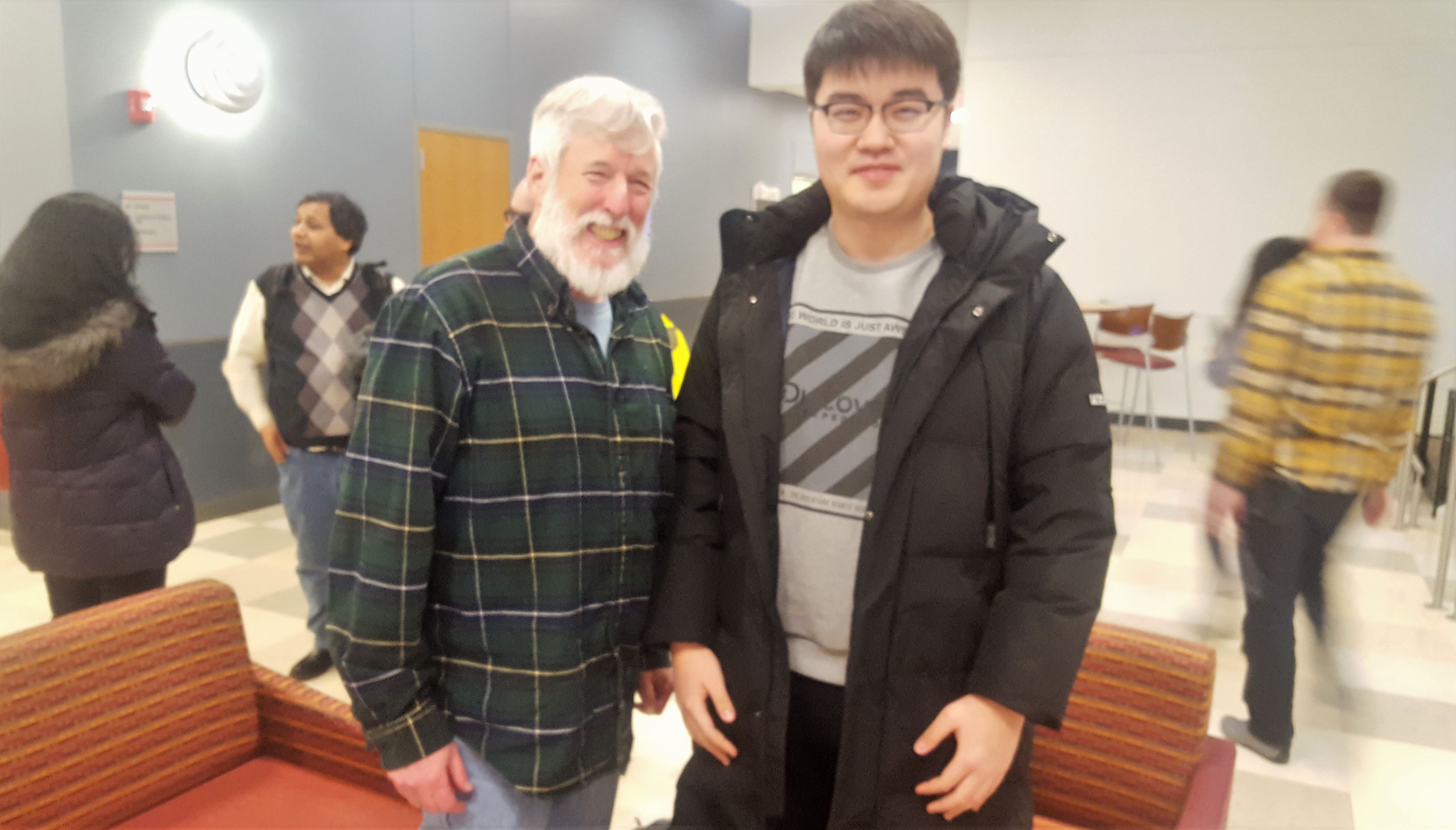With reusable straw movements and frequently new discoveries on climate change taking over the news, our environment is becoming a national concern.
As a result of the hike in environmental interest, Montclair State University’s earth and environmental studies holds a regular colloquium series where people can learn about sustainability.
Just one week into the spring 2019 semester, the department had no trouble packing the first floor lecture hall in the Center for Environmental and Life Sciences (CELS) with students and faculty for a plastics, degradability and environmental seminar.
Dr. Peter Strom, a professor of environmental sciences at Rutgers University, visited Montclair State to talk to a curious and plentiful audience about the environmental policy issues pertaining to the impact of nonplastic and plastic materials.
Strom went into depth about the degradability of plastic and when it can be best to use over other materials. He acknowledged issues with using plastic, such as when animals like seagulls get caught in plastic packaging for beverages.
However, Strom noted that plastic can sometimes be better for the environment than other materials. Strom emphasized the importance of knowing the often circumstantial pros and cons of biodegradable plastic.
“We’ve been able to solve some of the easiest environmental problems,” Strom said. “We make a commitment. I believe we can solve some of the more difficult ones, but in doing that we have to be careful about what other problems we create.”
Strom talked about how some of the solutions for solving environmental problems create other problems.
“We have to be careful,” Strom said. “We have to be thoughtful about how we address those.”
A lack of thought was not a characteristic of the seminar’s audience, as many of them were eager to ask questions and could be heard chattering about their interest in the presentation after Strom finished speaking.
Oyinda Fedipe, a graduate student working toward her Ph.D. in environmental science, found the lecture and Strom’s focus on material-based circumstantial benefits particularly interesting.
“There are different things to look at as an environmentalist,” Fedipe said. “So when you look at both sides, it kind of helps you put things into a broader perspective as oppose to ‘this is definitely better than this’ and this lecture was an eye-opener to that.”

Isamar Cortes (right) passes a sock made from recycled plastic to friend Archana Prasad (left) during a lecture at the Center for Environmental and Life Sciences.
Sam Carliner | The Montclarion
While people like Strom and Fedipe study and have a particular interest in the topic of degradability, the event and many more hosted by CELS are open to all students.
Isamar Cortes, a graduate student on the way to a master’s degree in environmental science, explained that sustainability issues affect everyone.
“The fact that everyone’s connected and everything’s connected and every little decision we make affects something else, [that] would probably be the biggest sustainability archer,” Cortes said.
Strom made it a point that humans have already solved some environmental issues and that people will continue to be successful at resolving issues if they are treated thoughtfully.



